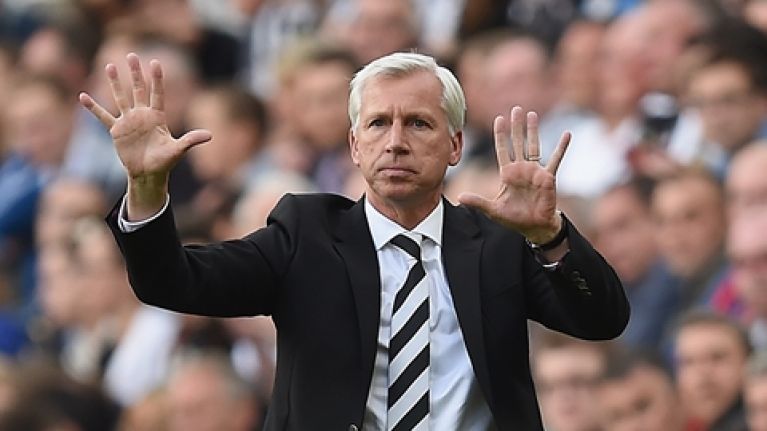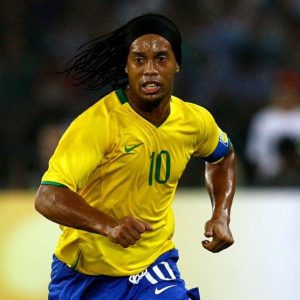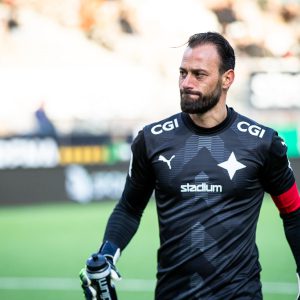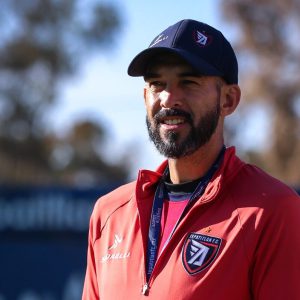

Coaches have to handle the “player power”
Exclusive interview with Allan Pardew
One of the most prominent figures in the landscape of English football, Alan Pardew has taken charge of seven clubs during a career spanning over two decades. He is a man with a clear set of footballing principles, as is Vítor Gouveia. Vítor penned the book “To Train to Play”, is a professor at Polytechnic Institute of Leira and is an officially licensed UEFA Pro Coach. Between them, they have a wealth of insight and experience into the footballing universe.
Soccer Hub had the good fortune to sit down with the pair of them and, as Vitor put it, conduct a “nice talk between two coaches”. Here’s what they discussed…
Vítor set the tone for the conversation, quizzing Pardew on the key differences between his formative years as a coach and the era in which he manages today. Alan, reflecting on his time with his first employer, Reading, talked about how the focus of the modern manager has somewhat shifted away from purely footballing affairs and towards a more multi-faceted operation.
“Their [the modern player’s] social media, their careers, are almost independently running in parallel with the football club,” said Pardew. “You have to understand that your gameplan has to work and live with the players that you’re representing”, he added, referencing the demands on the manager of today to handle the relatively recent phenomenon of ‘player power’.
Vítor echoed Alan’s sentiments, proposing that the manager, who used to reside at the top of a club’s hierarchy, is, in some circumstances, “the weakest link of the chain, underneath star players”. Pardew, who has spent the vast majority of his career coaching in the top flight, the spiritual home of these superstar footballers, gives two contrasting examples of how he’s dealt with this kind of talent in the past: Adam Lallana, whom Pardew managed in his time with Southampton; and Wilfried Zaha, who was with him during his spell with Crystal Palace.
With regards to Lallana, Pardew mused whimsically about how, through his coaching, the now England international became, not just an excellent footballer but a “well-rounded individual” – for Alan, this seeing improvement in both a player’s skill and personality is one of the most rewarding aspects of elite coaching.
In Zaha, the manager faced a different challenge. Pardew felt that the Zaha was motivated by a desire to help, not necessarily the team, but himself. Of course, with many players this would be a tremendous problem; but the then Palace manager, recognising Zaha’s explosive talent, signed Yohan Cabaye to accommodate Zaha’s demands to be brought more into the game – “you have to understand where they’re coming from and try and draw them in, try and give them something that makes them bond with you”, he said.
When Vítor asked how Alan thought the game has evolved since the inception of the Premier League in 1992, Pardew revealed the three features of the game he believed had gone through the most dramatic transformations: sports science, tactics, and the role of the goalkeeper…
“Sports science”, Alan said, “took a big hold in the Premier League, our ability to get players to perform at a higher level on a consistent basis has grown through that – i.e. making sure that their wellbeing, their recovery was correct”. One of the greatest exponents of this revolutionary advancement was, of course, Arsene Wenger – a manager who is particularly relevant to Pardew’s next observation: that the Premier League has become a melting pot of continental tacticians…
“Mourinho”, “Klopp”, “Guardiola” – “we’ve had a world feed of tactics, so I think the Premier League is at the cutting edge of tactical play”, Pardew observed. These innovators have, in his opinion, led to another footballing modernization – goalkeepers who are comfortable with the ball at their feet are more common now than in any time in the history of the sport.
Pardew eulogised about Man City stopper Ederson, and Liverpool’s No.1, Allison, explaining how these players “widen your [a manager’s] armoury” by creating opportunities to score ” from one pass” or by building “a beautiful attack, coming through the team”. Amusingly, he added that “in my day the coach would, if I tried to do this, literally try to strangle me”.
To close the interview, Vítor asked Alan what the most prominent characteristics of an ‘Alan Pardew’ team are. Pardew proudly answered that his teams always had “energy, commitment to try and win from whatever scenario, and, mainly, my teams have always had an amount of flair”. This, the ex-West Ham, Newcastle and Crystal Palace manager added, was a high-risk strategy, but one that he will always stick by.
This is an admirable attitude. Hopefully, we’ll see Alan managing back in the top-flight very soon.
Watch the full interview bellow:
More content at www.hub-soccer.com
Follow us on Facebook!
Categories
Latest Courses
-
9 Lessons
-
1 Lesson
-
6 Lessons
You May Also Like
- Blog
- August 1, 2022
- Blog
- June 3, 2022
- Blog
- May 27, 2022
Developed by Brandit Digital Media Services.





